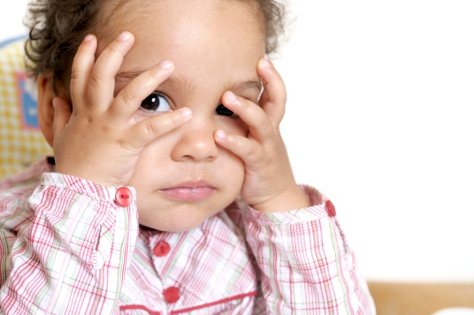Potty training: Dealing with setbacks
Tips to help you deal with inevitable setbacks when potty training your toddler

Dealing with potty training setbacks
Often potty training coincides with starting preschool which naturally brings with it plenty of changes, not least of which are new surroundings and new routines. In light of this, it’s hardly surprising that some toddlers experience a few setbacks when it comes to potty training.
Accidents can happen because of:
Unfamiliarity
With so much to learn and get used to, pre-schoolers might get a bit flustered when they feel the urge to go.
They might become distracted, be unsure about who to ask or feel a bit nervous about using the toilets at nursery. With a little time and practise they will soon adapt to their new setting.
Tiredness
The first few days and weeks of preschool leave kids feeling understandably exhausted - and it's when they're tired that accidents are more likely to happen. Try introducing a new routine that includes visiting the loo before you leave for preschool and as soon as you get home, or even just before you leave preschool if this is convenient.
Holding on
For various reasons, some children simply don’t like using unfamiliar facilities and choose to 'hold on' until they get home, which can result in accidents. Try to understand what it might be about the toilets at nursery that your child doesn’t like and work on building their confidence with help from staff.
Top tips for starting preschool and staying dry
Nursery staff often have plenty of potty training experience and can be a great help during transitions. Let your little one know that potty training is a team effort. Stay in close contact with their teachers to ensure you’re all reinforcing the same messages.
Try these tips:
- Tour the toilet facilities at the new school with your child, and explain how everything works.
- Help your child understand what to do if he or she needs to go during the school day.
- Communicate steps forward (as well as regressions) both at school and at home.
- Dress your child in clothes that are easy to pull up and down.
- Pack spare clothes and pull up pants so that accidents can be handled smoothly
Regression
Sometimes, potty training can feel like one step forward, one step back. The odd accident every now and again — particularly when your child is ill, engrossed in a game, or in a deep sleep — is nothing to panic about. But if these incidents become more regular, this could mean your child is in a period of regression.
There’s a big difference between setbacks and regression. A setback is simply part of the learning process and happens when skills are being mastered, and
your child is adjusting physically and emotionally to a new developmental stage. Setbacks happen frequently, and are normal. You can also expect them during exciting times, such as when the family is on holiday. However, regressions happen after a skill is mastered and stable for some months, and then suddenly regresses. This can be caused by either stress or physical illness, if this is the case do talk to your GP.
What triggers potty training regression?
Regression can happen for a variety of reasons, but is often stress-related. A big change to a toddler’s routine, such as moving house or starting nursery, can trigger regression. An unpleasant toilet experience, such as a painful poo, could also be the cause. Another common reason is the arrival of a new baby. Or sometimes, regression can simply be about needing more attention.
Physical problems can trigger regressions, too. A urinary tract infection can make it difficult and painful to control the bladder, which results in accidents. Even constipation can trigger regression. Seek medical advice if you’re at all concerned that your child might have a medical problem, then try again once things have calmed down.
Getting back on track with potty training
Getting back to basics is the best way to overcome regression. Support and encouragement in abundance and going back to your earlier routine of regular potty use and marking progress together on a reward chart. Remind your child to go to the potty and look out for signs that a wee is imminent, so that you can encourage a trip to the loo. If the accidents go on for more than a few days, or if it’s upsetting your child, taking the pressure off for a few weeks while relying on pull up pants.
Beware of negative reinforcement, as getting lots of attention for accidents may encourage that behaviour.
Offer plenty of praise when your toddler shows signs of getting back on track, but do your best to make little fuss about accidents.